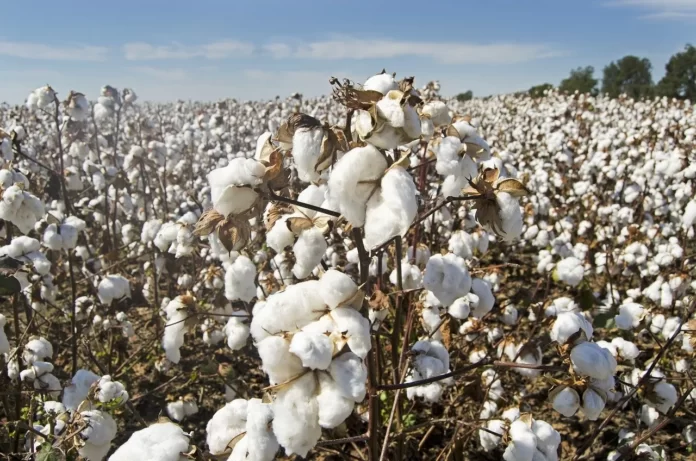Deputy Prime Minister and Foreign Minister Senator Mohammad Ishaq Dar on Wednesday underscored the urgent need to revive Pakistan’s cotton sector, calling for coordinated and implementable policy measures to reestablish the crop’s centrality to the national economy and improve earnings for growers.
Chairing the third meeting of the Cabinet Committee on Essential Cash Crops, Dar said that restoring cotton’s productivity and profitability is crucial not only for rural livelihoods but also for the stability of Pakistan’s broader agricultural economy and textile industry.
“We must take coordinated and actionable steps to restore cotton’s central role in the economy and improve returns for farmers,” the Deputy Prime Minister said.
The committee held an in-depth discussion on the Cotton Plan 2025–26, which lays out a comprehensive framework of immediate, medium-term, and long-term policy interventions aimed at reviving the cotton crop. The plan addresses core issues such as seed quality, pest management, irrigation efficiency, pricing mechanisms, and market access factors that have contributed to a decline in cotton output in recent years.
To accelerate implementation, the Ministry of National Food Security and Research (MNFSR) was directed to convene a follow up meeting next week, with the participation of all relevant stakeholders from both the public and private sectors along the cotton value chain. This includes farmers’ associations, ginners, exporters, seed companies, research institutions, and provincial representatives.
At the upcoming meeting, the MNFSR is expected to present an actionable implementation plan that outlines concrete steps, timelines, and institutional responsibilities to ensure that committee recommendations are translated into measurable outcomes.
The committee also conducted a detailed review of wheat production projections for the year 2025, along with carry-forward stocks and national consumption requirements for the 2025–26 food year. Officials noted with satisfaction that sufficient wheat stocks are available to meet domestic demand until the next harvest, suggesting that no major supply shortfalls are anticipated in the near term.
The meeting was attended by a high-level panel of officials, including the Minister for National Food Security and Research, the Minister for Finance, the Minister for Planning, Special Assistant to the Prime Minister (SAPM) Tariq Bajwa, and senior representatives from the MNFSR, Ministry of Commerce, and the Federal Board of Revenue (FBR).
The Cabinet Committee on Essential Cash Crops was established to monitor and steer the performance of key agricultural commodities particularly cotton, wheat, sugarcane, and rice which are critical to Pakistan’s food security, export earnings, and rural employment. The committee has increasingly focused on reviving the cotton sector, which has faced stagnation due to climate stress, pest outbreaks, inconsistent seed quality, and inadequate policy enforcement.
With cotton being a cornerstone of the country’s textile based export economy, stakeholders have welcomed the government’s renewed focus and called for continuity in support policies, R&D investment, and farmer incentives.




